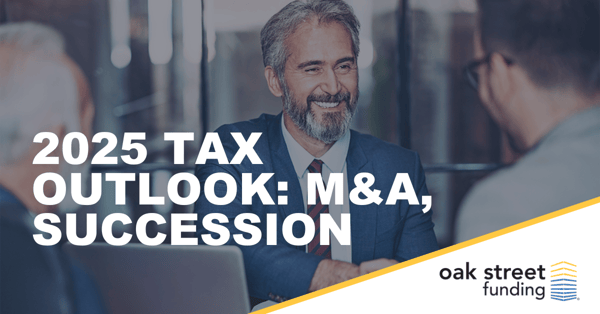.png?width=600&height=314&name=Resources%20Thumbnails%20(6).png)
For many CPAs, the highlight of their career is becoming partner in a firm. The journey to becoming a partner is exhausting and mentally challenging. Some CPAs work for 10 or more years to become partner. It would be devastating to become a partner and realize it is not what you expected, so if that is your dream, here are some factors to consider.
Implications of becoming a CPA partner
Becoming partner in a CPA firm means achieving equity ownership of the firm and accepting the rewards and challenges associated with ownership. What that looks like may differ from firm to firm, but there are some similarities.
Before you may have only been responsible for your book of clients, but now you will be expected to participate in business development. The AICPA says, “When you’re not working, be out in the community. Be seen. You have to bring in new business.” If you aren’t familiar with business development, this may be a challenge, but you can find resources online or seek advice from more senior partners.
As a partner, you’ll also be responsible for the future of the firm. You will be accountable not only to your clients, but also to your co-workers and fellow partners. Your decisions will carry greater weight and influence in the firm.
Is it worth being a partner at a CPA firm?
It is up to each individual to weigh the benefits and challenges of becoming a partner to decide if the risk is worth the reward. A few of the pros and cons of becoming a partner are listed below.
|
Pros
|
Cons
|
|
Greater compensation – partners are eligible for profit-sharing and bonuses
|
Higher risk – partners are liable for the firm’s downfall and financial wellbeing of clients
|
|
Multiplied equity – investment in a firm can provide long-term financial gains even after retirement
|
More sacrifice – the success of the firm comes first and sometimes that means surrendering compensation and time
|
|
Expanded influence – partners have a say in the overall direction of the firm
|
Extra responsibilities – partners are responsible for business development, marketing, and talent management
|
|
Increased respect – achieving partnership is a commendable milestone that garners respect within and outside the firm
|
Changed relationships – jealousy can arise, and co-workers may resent decisions they feel will have a negative outcome
|
When you become partner, you may not immediately see a change in your compensation, but your tax reporting will change. Partners are required to file a Schedule K-1 with the federal government to report the income, losses, and dividends of the partnership. This change in tax reporting may impact your personal tax filings and how you file if you are married. The IRS has published a set of guidelines to help partners determine how to file.
How to get started:
Master Your Functional and Leadership Skills
Start taking steps early in your career to show you are willing to handle the additional responsibilities necessary to become partner. In some firms, an existing partner must recommend a CPA for partnership, so building mentor-mentee relationships is especially vital.
Firms are often looking for CPAs who go above and beyond, have integrity, and demonstrate a high level of both technical and leadership skills. Some firms may offer partnerships to CPAs with a niche expertise that will increase the value of the firm’s services. So, evaluate the range of services your firm provides and develop your skills in an area the firm is lacking.
How to finance CPA partner buy-in
A major component of partnership is the buy-in price. The Rosenberg Survey polled 400 CPA firms and found the average CPA buy-in cost is $144,000. At some firms, new partners are expected to make an immediate payment in cash or assume a loan. Very few new partners have access to that much cash, therefore many firms are creating opportunities for financing buy-ins. For some firms, that involves internal financing with repayments taken from future payroll and profit distributions. Others may expect payments quarterly or annually, perhaps deducted from future shares of profits.
What’s often a more practical and workable approach is when a firm guarantees a partner’s buy-in financing from an outside lender such as Oak Street Funding®. Our unique approach to CPA partner buy-in financing helps you obtain a better rate and terms than possible on your own. Furthermore, complete financing is available in as little as three weeks* and our dedicated deal team will guide you every step of the way.
With a customized solution tailored to the needs of each firm, our CPA buy-in financing is simple and the time from application to funding is short. Contact us today to get started!


.png?width=600&height=314&name=Resources%20Thumbnails%20(6).png)


/Resources%20Thumbnails%20(75).png?width=600&height=314&name=Resources%20Thumbnails%20(75).png)